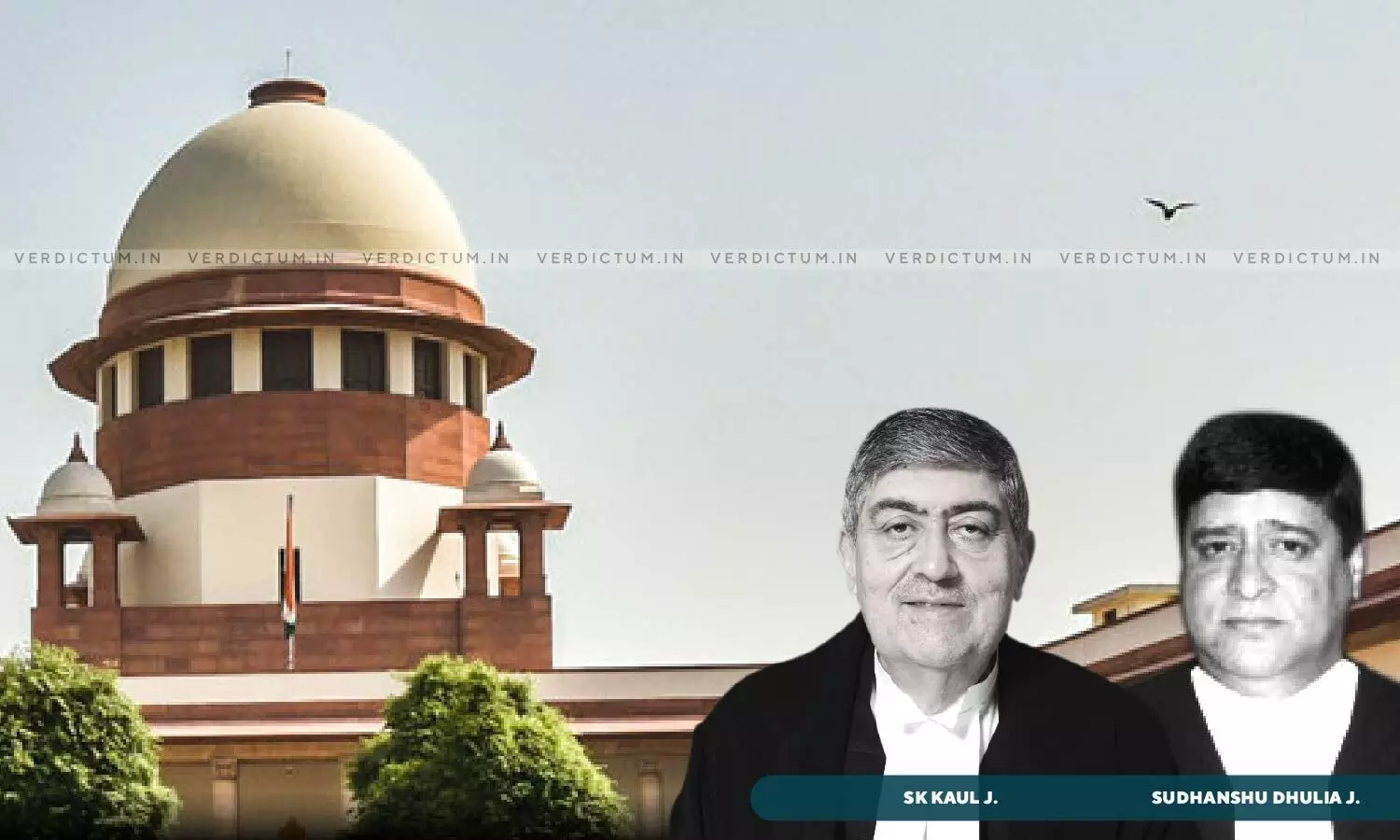
“Supreme Court Can’t Have A Panacea For Everything”: SC On Plea Seeking Enactment Of 2015 Bill Prohibiting Screening For Admissions In Nursery
 |
|The Supreme Court has refused to entertain a Special Leave Petition challenging a Delhi High Court’s order rejecting to issue a writ of mandamus to the Delhi government to expedite the finalization of Delhi School Education (Amendment) Bill, 2015. The Bill prescribes for prohibition of screening procedure in the matter of admission of children at pre-primary level (nursery/pre-primary) in schools.
In the hearing today, a bench led by Justice Sanjay Kishan Kaul during the arguments remarked, “There are so many things rattling, what should we do, Supreme Court can’t have a panacea for everything”. The bench also comprised Justice Sudhanshu Dhulia.
Advocate Ayush Anand appeared for the petitioner.
“Can there be a mandamus to introduce a law?...That’s the problem. That is the view the High Court has taken. How can we say the High Court is in error in taking this (view)”, said Justice Kaul at the outset.
To which the Advocate for the petitioner submitted that he is not seeking a direction to give assent to the bill, however he seeks to know the status of the bill.
To that Justice Kaul remarked, “It is a very local issue. It is a State Act issue. It says education in Delhi. There were many Acts for eg. the Rent Control Act, the amendments were passed, for 10 years they were not implemented ultimately nobody could implement it…this is not an administration action, this is a legislative exercise”.
“You get it under the RTI Act”, he added further.
Pursuant to which the Court upon enquiry was informed that the bill has been pending for 8 years now.
“So for 8 years (it has been pending)…obviously nobody wants this bill now, but you want the bill, now can we do so, we say that introduce the bill”, asked Justice Kaul.
“Schools have made a way out to circumvent the Right to Education Act. This is what Private Schools in Delhi are doing. They are interviewing nursery children then they induct those nursery children to class 1, now they can interview and screen these nursery children. So this is a way out, in orde to curb that menace…”, the Advocate submitted.
“I don’t know what is a menace and is not a menace that is for the government to control, we can’t control. Sorry”, said Justice Sanjay Kishan Kaul.
In the present matter the petitioner before the High Court had stated that the Bill banning screening procedure in nursery admissions in schools, was prepared in the year 2015 and for the last seven years without any justification and against public interest, the Bill is hanging between Central Government and Delhi Government and is not being passed by the Respondents. It is stated that the delay in proceeding further acts contrary to the interest of children in the matter of admission to nursery/preprimary in private schools and has resulted in arbitrary procedure being adopted by different schools in matters of admission of children at preprimary level.
The Petitioner relied on the provisions of the Right of Children to Free and Compulsory Education Act, 2009 to contend that in order to implement the provisions of the RTE Act, it was felt necessary to do away with the screening procedure for admission of children to nursery/pre-primary classes. It was further stated that the Bill attempts to ensure that there is no discrimination amongst children in the matter of admission to the pre-primary classes and also endeavours to check commercialisation of education at the stage of admission of children to the schools.
A bench of Chief Justice Satish Chandra Sharma and Justice Subramonium Prasad while relying on a catena of judgments had observed in the impugned order, “…after the Bill had a passage through the House of Legislature of a State, it is presented to the Governor and it is for the Governor to declare at that stage whether he gives assent or he withholds the assent or refers the Bill to the President for assent. What the Governor does is peculiarly within his discretion and, exercising his discretion, he cannot feel bound on the act and advice of his Ministers. Courts cannot control or interfere in this procedure and cannot direct the Governor or pass a writ to the Governor to grant assent or desist from granting assent. Article 200 of the Constitution of India within its fold indicates that the Governor must as soon as possible after the presentation of the Bill to him for his assent either return the Bill together with a message to the House/Houses to reconsider the Bill or any specified provision thereof”.
Accordingly, the bench dismissed the petition.
Cause Title: Social Jurist v. Government Of NCT Of Delhi And Ors.